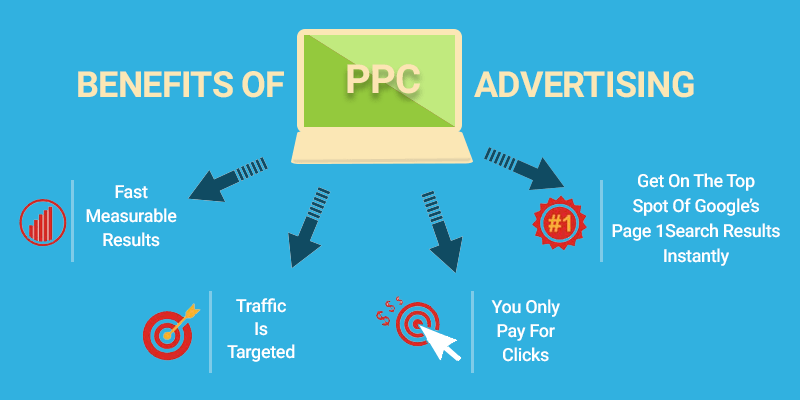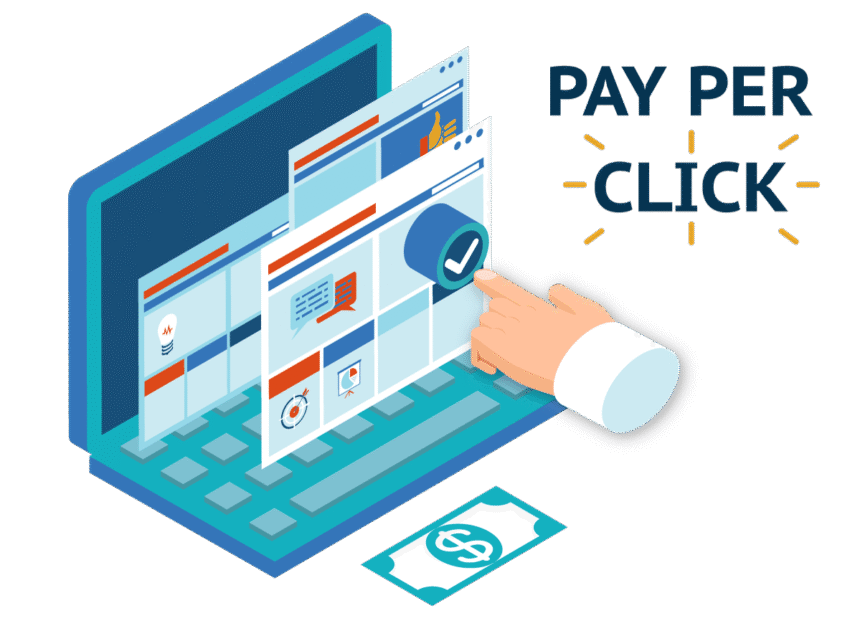In today’s fast-paced digital landscape, pay-per-click (PPC) advertising has become an essential strategy for businesses looking to generate leads, increase brand visibility, and drive sales. However, managing PPC campaigns effectively requires expertise, time, and resources that many businesses may not have. This is where partnering with the right PPC advertising agency can make a world of difference.
Choosing the right agency is crucial to ensure you get the most out of your advertising investment. With numerous agencies offering a range of services, making an informed decision can be challenging. In this comprehensive guide, we’ll explore how to select the best PPC agency for your business, key factors to consider, and common pitfalls to avoid.
1. Why Work with a PPC Advertising Agency?
Before diving into how to choose the right agency, it’s important to understand the benefits of working with PPC professionals.
a) Expertise and Experience
A reputable PPC agency brings specialized knowledge, tools, and experience to the table. They stay up-to-date on the latest trends, algorithm changes, and best practices, helping your campaigns stay competitive in an ever-changing market.
- Advertisement -
b) Time Savings
Managing PPC campaigns can be time-consuming. By outsourcing this task to an agency, you can focus on other core aspects of your business, confident that your PPC campaigns are in capable hands.
c) Data-Driven Results
Experienced agencies rely on data analytics to track the performance of your campaigns, make data-driven decisions, and optimize strategies for maximum return on investment (ROI).
d) Cost Efficiency
While hiring an agency may seem costly at first, it can lead to greater cost efficiency in the long run. Agencies have the expertise to allocate budgets wisely, minimize wasted ad spend, and optimize campaigns for better results.
2. Defining Your PPC Goals
Before you start searching for a PPC agency, it’s crucial to have a clear understanding of your goals. Different businesses have different objectives, and your goals will influence which agency is best suited for your needs.
Common PPC goals include:
Increasing Website Traffic: Driving more visitors to your site.
Lead Generation: Capturing contact information from potential customers.
E-commerce Sales: Boosting product sales through paid search.
Brand Awareness: Building your brand’s visibility and recognition.
Improving ROI: Maximizing the value of your advertising budget.
Defining your goals will help you narrow down your search and find an agency with a proven track record of achieving similar outcomes.
3. Factors to Consider When Choosing a PPC Agency
a) Experience and Track Record
One of the first things to look for in a PPC agency is their experience in the industry. Consider the following questions:
- How long have they been in business?
- Do they specialize in PPC, or is it just one of many services they offer?
- Have they worked with businesses similar to yours in terms of industry, size, or goals?
Ask for case studies, client references, and examples of successful campaigns. This will give you an idea of their ability to deliver results.
b) Certifications and Partnerships
Look for agencies that are certified by major advertising platforms like Google Ads, Microsoft Advertising, and Facebook. These certifications indicate that the agency has met certain standards of proficiency and has access to advanced tools and insights.
Common certifications include:
- Google Partner or Premier Partner: Agencies with this status have demonstrated expertise in Google Ads.
- Microsoft Advertising Partner: Indicates proficiency in Microsoft’s advertising platform.
c) Range of Services
While your primary focus may be PPC advertising, it’s worth considering agencies that offer complementary services such as:
- Search Engine Optimization (SEO)
- Social Media Advertising
- Content Marketing
- Landing Page Optimization
- Web Design and Development
A holistic approach can lead to better integration of your marketing efforts and improved results.
d) Pricing Structure
Agencies typically charge for their services in different ways, such as:
Percentage of Ad Spend: A common model where the agency’s fee is based on a percentage of your total ad budget.
Flat Fee: A fixed monthly fee for managing your campaigns.
Performance-Based Pricing: The agency’s fee is tied to specific performance metrics, such as lead generation or sales.
Choose a pricing structure that aligns with your budget and provides a clear understanding of how fees are calculated.
e) Transparency and Communication
A good PPC agency should be transparent about their strategies, performance metrics, and pricing. Ask about the frequency and format of their reports, and ensure they are willing to provide regular updates and respond to your questions.
f) Tools and Technology
Leading PPC agencies use a variety of tools to optimize campaigns, such as keyword research tools, bid management platforms, and analytics software. Ask about the technology stack they use and how it benefits your campaigns.
g) Customization and Strategy
Avoid agencies that offer a one-size-fits-all approach. Every business is unique, and your PPC strategy should reflect that. The agency should take the time to understand your business, industry, competitors, and target audience before creating a custom strategy tailored to your needs.
4. Red Flags to Watch Out For

While there are many reputable PPC agencies, there are also some red flags that could indicate a poor fit or a less-than-reputable agency. Here are a few warning signs to watch for:
a) Lack of Transparency
If an agency is unwilling to explain their methods, performance metrics, or pricing structure, it’s a major red flag. Transparency is essential for building trust and ensuring you understand the value they bring to your campaigns.
b) Unrealistic Promises
Be wary of agencies that promise guaranteed results, such as “instant #1 rankings” or “guaranteed ROI.” PPC advertising is influenced by many factors, including competition and market conditions, making guarantees unrealistic.
c) No Customization
If an agency offers cookie-cutter solutions or fails to understand your unique business needs, they may not be the right fit. Effective PPC campaigns require personalized strategies.
d) Limited Reporting
Comprehensive reporting is essential for evaluating the success of your PPC campaigns. If an agency offers vague or infrequent reports, it may indicate a lack of accountability.
5. Questions to Ask Potential PPC Agencies
To find the right fit for your business, ask potential PPC agencies the following questions:
- What industries do you specialize in?
- Understanding the agency’s experience in your industry can help gauge their familiarity with your target audience.
Can you provide examples of past successful campaigns?
- Case studies and testimonials can offer valuable insights into their track record.
- What is your approach to keyword research and targeting?
- A thoughtful approach to keyword research is crucial for maximizing ROI.
- How do you track and measure success?
- Look for agencies that use key performance indicators (KPIs) aligned with your goals.
- What tools and platforms do you use?
- The right tools can significantly impact campaign performance.
- How often will we communicate, and what will be included in the reports?
- Clear communication is essential for building a successful partnership.
6. The Onboarding Process: Setting Expectations
Once you’ve selected a PPC agency, the onboarding process begins. This phase is critical for establishing clear expectations and ensuring a smooth transition. During onboarding, the agency should:
Conduct a comprehensive audit of existing PPC campaigns.
Understand your business goals, target audience, and competition.
Create a detailed PPC strategy tailored to your needs.
Set up tracking and analytics tools to monitor performance.
Establish clear communication channels and reporting schedules.
7. Evaluating and Optimizing Your PPC Partnership
Your relationship with a PPC agency is ongoing, and it’s essential to regularly evaluate performance and optimize campaigns for maximum results. Here are some steps to ensure continuous improvement:
a) Regular Performance Reviews
Schedule regular performance reviews with your agency to discuss campaign results, challenges, and opportunities for improvement.
b) Monitor Key Metrics
Track metrics such as click-through rates (CTR), conversion rates, cost per click (CPC), and return on ad spend (ROAS). These metrics provide valuable insights into campaign performance.
c) Be Open to Testing
A/B testing and experimentation are key to finding what works best. Be open to testing different ad copy, landing pages, and targeting options.
d) Adjust Strategies as Needed
Market conditions and consumer behavior can change rapidly. Ensure your PPC strategies remain adaptable and aligned with your evolving business goals.
8. Making the Right Choice for Your Business
Choosing the right PPC advertising agency can significantly impact your business’s success. By understanding your goals, thoroughly vetting potential agencies, and fostering a collaborative partnership, you can maximize the value of your PPC investment. Remember that success in PPC is not an overnight achievement—it requires consistent effort, optimization, and a commitment to data-driven decision-making.
Whether you’re a small business looking to increase brand visibility or a large enterprise seeking to drive more leads, finding the right PPC agency is a crucial step toward achieving your digital marketing goals. Take the time to do your research, ask the right questions, and select an agency that aligns with your vision for growth and success.

